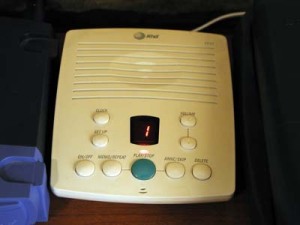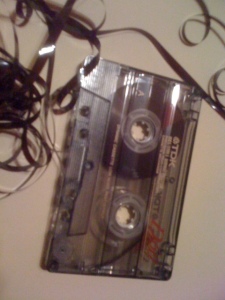I do.
Napster was a peer-to-peer file sharing program that was popular around the turn of the millennium, and enabled people to download music that would otherwise have to be purchased with their parents’ hard-earned money. To get around the troublesome copyright laws, Napster employed the ancient legal doctrine of “they can’t catch you all.”
I used Napster solely to share my own recordings of myself playing the spoons. I never even searched for copyrighted music. One of the greatest pleasures in my life at that time was working for hours as a bumper cars operator so that I would have the $20 to buy a CD and finding the one song that wasn’t terrible.
But not everyone shared my work ethic. At college, I had this friend who downloaded thousands of songs through Napster. He would go through genres – classic rock, 80s pop, the songs by the “Zack Attack” band from Saved by the Bell – and play the songs for his friends when they congregated in his room to buy Tupperware and sip fine wine from red plastic cups.
Using Napster was not without its challenges. My friend lived in a fraternity house, and the House Computer Nerd, an elected position at the time, told my friend that his downloading used up so much bandwidth that the rest of the brotherhood was having trouble playing Half-Life in real time. At the next meeting the brotherhood voted to excommunicate my friend from the router. Unable to find other housing with sufficient bandwidth, he dropped out of school and moved back home to his parents’ T-1 connection.
For a while my friend was able to live in download heaven. He was making his way through theme songs to cartoon programs when his parents got fed up with him leaving near-empty cartons of milk in the refrigerator, and turned him in to Metallica, a heavy metal band that specialized in intellectual property. At his subsequent trial my friend tried to mount a vigorous defense, but his lawyer spent the whole time downloading music instead of making objections, and my friend was sentenced to 20 years of hard labor in Siberia. I heard that he was later implicated in a snow-swapping scheme, and murdered by the people who owned the rights to the snow.
As for Napster, it was replaced by a competitor called Gnutella, which boasted faster transfer rates and could be spread on pizza dough.
Thanks to Jennifer Albright for the topic.








